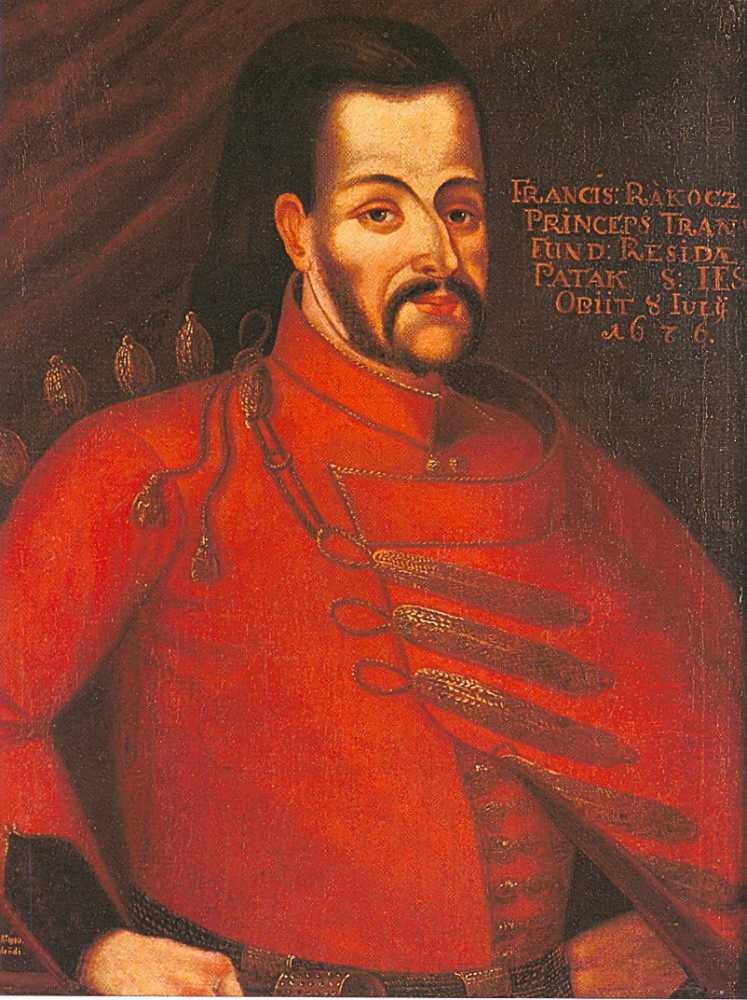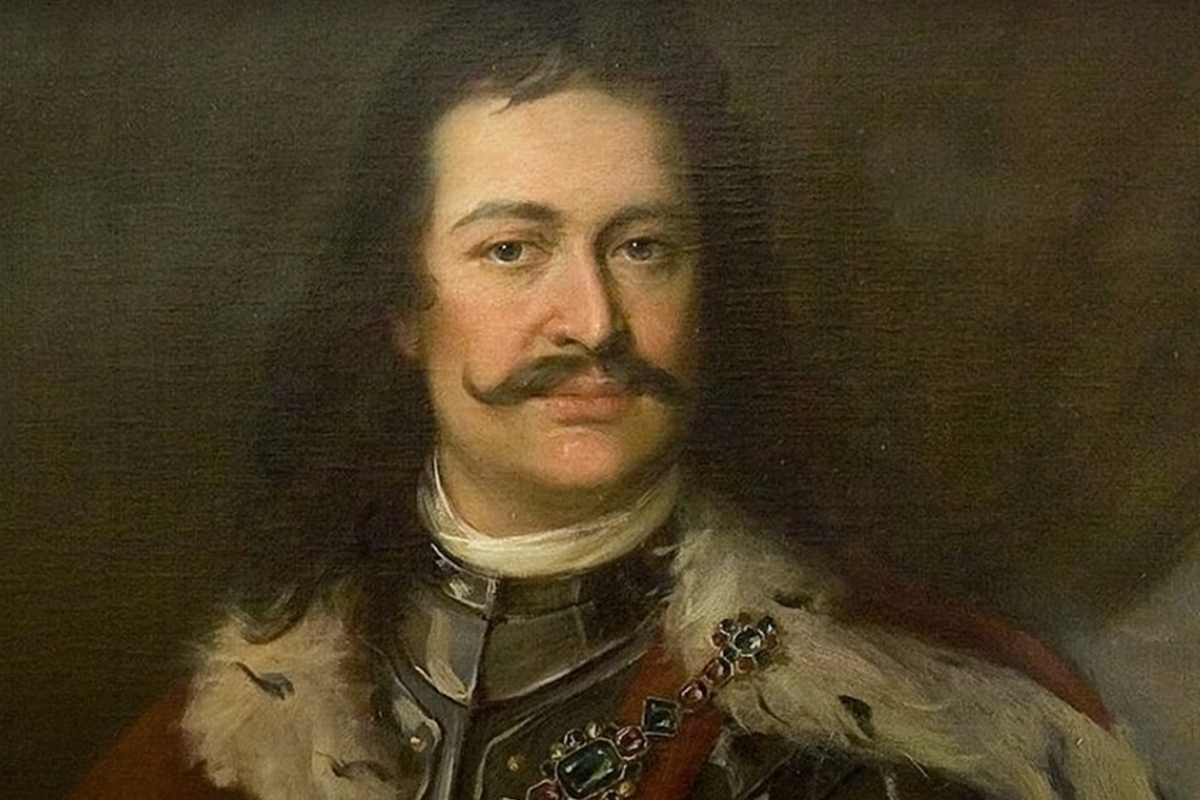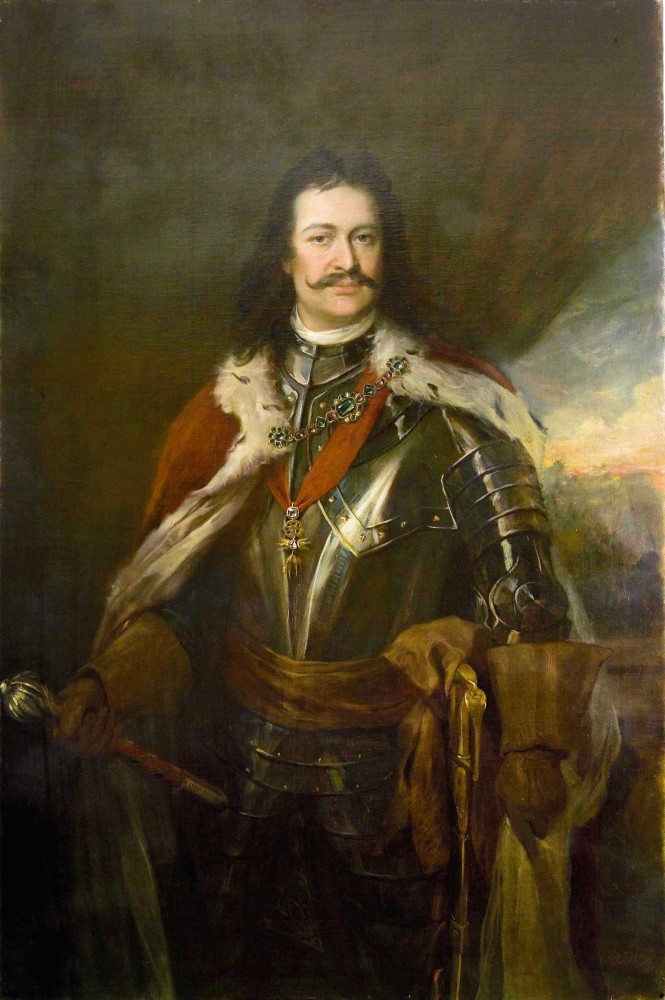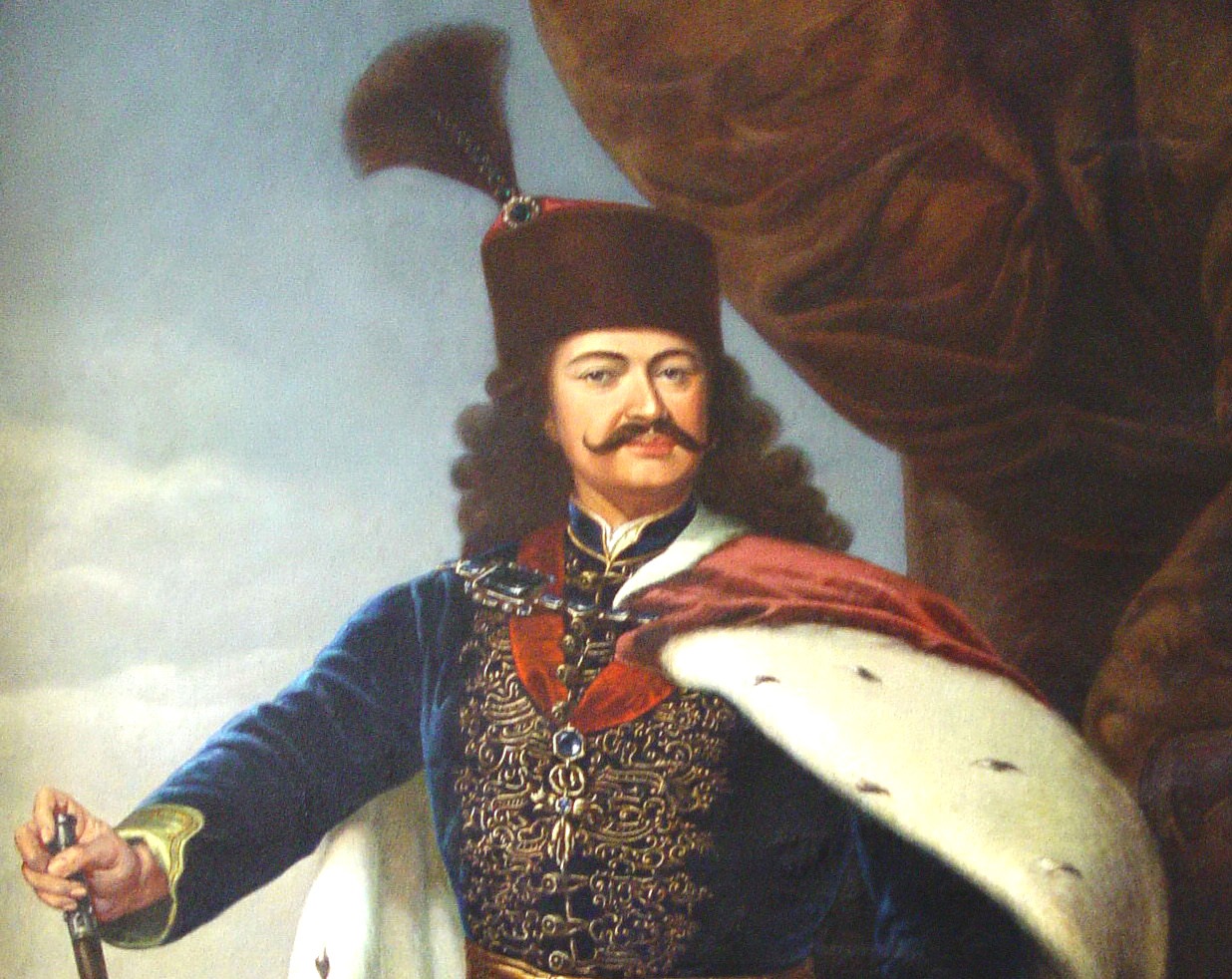
Rákóczi Ferenc szobra , Budaörs
Francis II Rákóczi (Hungarian: II. Rákóczi Ferenc, Hungarian pronunciation: [ˈraːkoːt͡si ˈfɛrɛnt͡s]; 27 March 1676 - 8 April 1735) was a Hungarian nobleman and leader of Rákóczi's War of Independence against the Habsburgs in 1703-1711 as the prince (Hungarian: fejedelem) of the Estates Confederated for Liberty of the Kingdom of Hungary.

Előkerült I. Rákóczi Ferenc keresztelői prédikációjának 365 éves, kéziratos másolata OSZK
Rákóczi's War for Independence (1703-1711) was the first significant freedom fight in Hungary against absolutist Habsburg rule. It was fought by a group of noblemen, wealthy and high-ranking progressives who wanted to put an end to the inequality of power relations, led by Francis II Rákóczi (II. Rákóczi Ferenc in Hungarian).

Országos Széchényi Könyvtár
Rákóczi's War of Independence (1703-1711) was the first major struggle for freedom against Habsburg absolutism in Hungary, which was liberated from Ottoman rule. At the beginning of 1704, Ferenc Rákóczi II informed the foreign powers in a manifesto dated 7 June 1703 that the people of Hungary were taking up arms for state self-determination.

Rákóczi Ferenc Nem bánjuk, hogy adásban Balázs a főnök
the cult of the Rákóczi War of Independence for centuries, as many monuments testify to this day and it is revived every year. Keywords: Ferenc Rákóczi II, the Rákóczi War of Independence, the Rákóczi cult, Berehove, memorial places of the Rákóczi era in Berehove. Background to the study and its aims. The war of independence led by Ferenc

Ferenc Rakoczi ll (16761735) History, Historical figures, Historical
Rákóczi's War of Independence (1703-1711) was the first significant attempt to topple the rule of the Habsburgs over Hungary.The war was conducted by a group of noblemen, wealthy and high-ranking progressives and was led by Francis II Rákóczi and resigned soldiers and peasants fought alongside the noblemen. The insurrection was unsuccessful, ending with the Treaty of Szatmár; however.

Roland, II. Rákóczi Ferenc kutyája, akit az egész udvar gyászolt Az Én Kutyám
Rakoczi Ferenc ( 1676-1735 ) was a Hungarian nobleman who was leader of Rakoczi's War Of Independence against the Habsburgs ( 1703-1711 ). This fine detailed statue fits in well with all the other statues here and is well worth checking out if you're planning on visiting Heroes Square.

Catalogue The Catalogue History Picture Rákóczi, Ferenc II, Prince of Transylvania The de
Rákóczi Ferenc, I., rákóczi és felsővadászi, birodalmi hg.(Gyulafehérvár, Alsó-Fehér vm., 1645. febr. 24.-Makovica vára, 1676. júl. 8.): választott.

II. Rákóczi Ferenc 1 poltura 1704 KB
Rákóczi Ferenc, I. (Gyulafehérvár, 1645. febr. 24. - Makovica, 1676. júl. 8.): erdélyi fejedelem, II. ~ György és Báthori Zsófia fia. Az erdélyi ogy. még apja életében, 1652-ben fejedelemmé választotta, de 1660-ban apja életével együtt trónját is elvesztette. Mo.-i birtokaira vonult vissza, anyja befolyására katolizált.

II. Rákóczi Ferenc ünnepi dolmányban. A nyakbavető sajátos magyar utat futott be, fél lánc amit
Ferenc Rákóczi, I, scion of a noble Magyar family, and in 1670 a leader of an unsuccessful Hungarian-Croatian revolt against the Habsburgs. Rákóczi, the son of György Rákóczi II, had been designated (1652) to become prince of Transylvania, but never did reign after his father's death (1660).
II. Rákóczi Ferenc Köztérkép
Az uralkodó 1664-ben grófi rangot, majd 1666-ban sárosi főispáni címet adományozott Rákóczinak, a férfi azonban az 1663-64. évi török háború kiábrándító befejezése, az előnytelen vasvári béke miatt ekkor már egyáltalán nem szimpatizált a bécsi udvarral. A Wesselényi Ferenc nádor vezette főúri összeesküvők 1665 körül Rákóczi Ferencet is megkörnyékezték.

Rákóczi Ferenc szabadságharc ezüst emlékérem
Ferenc Rakoczi,. Prince Rákóczi of Transylvania (Prince of Transylvania from 1704 to 1711) and the Kingdom of Hungary. He is recognized as a National Hero of Hungary. Prince Francis was a wealthy nobleman (and for a time, the wealthiest landlord in the Kingdom of Hungary) and military leader in the Hungarian uprising against the Habsburgs in.

II. Rákóczi Ferenc 115 éve Civilek
Francis I Rákóczi (February 24, 1645, Gyulafehérvár, Transylvania - July 8, 1676, Zboró, Royal Hungary) was a Hungarian aristocrat, elected prince of Transylvania and father of Hungarian national hero Francis Rákóczi II. Francis Rákóczi was the son of George Rákóczi II, prince of Transylvania, and Sophia Báthory. He was elected.

Rákóczi Ferenc szabadságharc ezüst emlékérem
Rákóczi György megsebesült, majd június 7-én meghalt. I. Rákóczi Ferenc ezután már nem tudta visszaszerezni korábbi hatalmát. 1661. augusztus 15-én ő és édesanyja, Báthory Zsófia rekatolizáltak. 1666. január 1-jén I. Rákóczi Ferenc Sáros vármegye örökös főispánja lett. Március 1-jén feleségül vette Zrínyi Ilonát.

Drawing for competition Pince Ferenc Rákóczi Competition, Drawings
Felsővadászi II.Rákóczi Ferenc (Borsi, 1676. március 27. - Rodostó, 1735. április 8.) magyar főnemes, a Rákóczi-szabadságharc vezetője, erdélyi fejedelem, birodalmi herceg (Reichsfürst). 1704-ben Gyulafehérvárott erdélyi fejedelemmé választották, és így ő volt az utolsó, aki betöltötte ezt a tisztséget. 1705-ben a szécsényi országgyűlésen a dux & princeps.

Rakoczi Ferenc Costumes, Hussar, Artwork
375 éve, 1645. február 24-én született Gyulafehérváron I. Rákóczi Ferenc választott erdélyi fejedelem, a kuruc szabadságharcot vezető II. Rákóczi Ferenc édesapja. II. Rákóczi György erdélyi fejedelem és Báthory Zsófia egyetlen gyermekét hétéves korában, 1652-ben választották meg az erdélyi rendek apja örökösének.

Családfa életrajz 4EN BORSI RÁKÓCZI KASTÉLY
Ferenc Rákóczi, II, (born March 27, 1676, Borsi, Hung.—died April 8, 1735, Rodosto, Tur.), prince of Transylvania who headed a nearly successful national rising of all Hungary against the Habsburg empire.. He was born of an aristocratic Magyar family. Both his father and his stepfather had led insurrections against the Habsburgs, and Rákóczi grew up in an atmosphere of fervent Magyar.